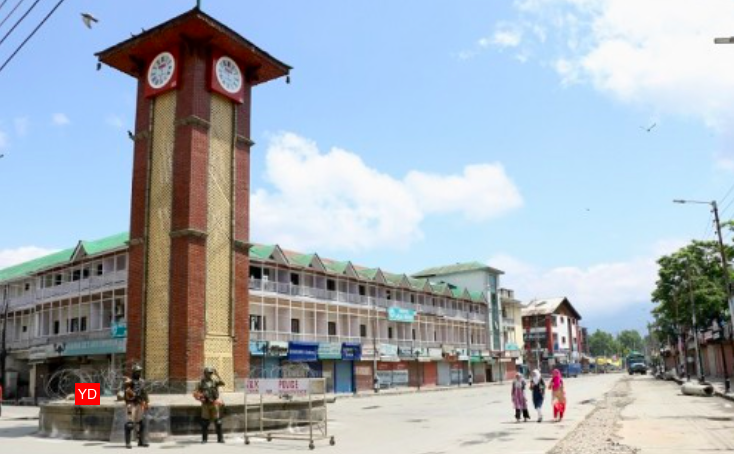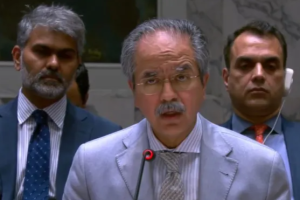Developmental work in Jammu and Kashmir is raising the bar for efficient engineering, good governance, and a pluralistic yet united approach to growth in the country. The Union Territory is working its way up in silence under Prime Minister Modi’s direction to transform JKUT into a Smart City with impetus on its culture and tradition. The Center is building a highly self-reliant model demanding responsibility and accountability from the people for employment and growth.
With an open-door policy on grievances and feedback, a transparent system of management is shaping up. Transparent Governance through an “Empowerment” portal which enables monitoring and public overview of works being executed and resources is another initiative of the government. Citizens can view online details of development works being implemented in their areas, offer feedback and suggestions. 32,889 works costing Rs 9,757 crore are presently available online. The youth is being mobilised to engage themselves in the greatest era of development. A few of such landmark projects are detailed below.
Major consumer services such as electricity and water bills can be paid online, allowing freedom of time and place. The Housing and Urban Development Department too has shifted its base online with a response time of 21 days for building permissions, among other services. The website shares all its master plans, services, emergency contact list to allow maximum public knowledge and participation.
In Jammu, the development project of the Tawi River Front has been sanctioned. The project is based on the well-received model of the Sabarmati River Front to give an aesthetic look to Tawi. 3.5 km of pathways along the river are being constructed for public access. Presently the Phase-1 of the project stands at the cost of Rs 194 crore and will take about 1.5 years to be completed.
JKUT’s dream project, “A road to every village”, broke the record in the country by achieving the highest ever road length under PMGSY in 2020-21 — construction of 3,167 km roads and blacktopping of 5,500 km roads. The transport ministry has specially focussed on the beautification of roads with tourism potential.
Power Development in the UT has a distinguished history. Recently hydropower projects of 3,000 Megawatts (MW) capacity standing at Rs. 22,315 crore have been revived and accelerated. MOUs for projects worth Rs 29,600 crore with a capacity of 3284 MW have been signed. Moreover, Rs 5,000 crore is being invested in power distribution system strengthening. Unsurprisingly, the power generation capacity is expected to double in 3 years!
In the sphere of industry development, the government is implementing a New Central Sector Scheme in the J&K. The scheme offers four incentives: Capital Investment Incentive, Capital Interest subvention, Goods & Service Tax Linked Incentive (GSTLI), and Working Capital Interest Subvention. A total outlay of Rs. 28,400 crore has been earmarked for the revival of old industries. Under the scheme, the silk factory at Rajbagh (Srinagar) has been upgraded at Rs 23 crore and the renowned Bemina Woollen Mills has been modernized at the cost of Rs 4.5 crore.
Under the SEHAT-PMJAY (Ayushman Bharat Pradhan Mantri Jan Arogya Yojana) scheme aimed to provide free insurance cover of upto 5 Lakh per family to all the residents of the JKUT, a world-class health infrastructure is underway in the region. So far 55.56 Lakh beneficiaries have registered. The government has committedly spent Rs 7,177 crore, the highest budget allocation for health in the country, to strengthen the health sector and make healthcare affordable and accessible to all.
Under the Saksham Scheme, financial relief is being granted to families who have lost their breadwinner due to coronavirus. Additionally, the scheme also provides special annual scholarships, at the rate of Rs 20,000 and Rs 40,000 to school and college-going children who lost their guardians. With the coming of 2 new AIIMS, 7 new Medical Colleges, 10 new Nursing Colleges, and 2 new State Cancer Institutes, a paradigm shift is being witnessed in the health sector of the UT.
Lieutenant Governor Manoj Sinha has called for a massive infrastructure boost for the sports ecosystem. The work for the indoor sports complex in every district, playfield in every panchayat, floodlighting, synthetic turfing in stadiums, and international level facilities has begun. Projects for the synthetic hockey turf in KK Hakku Stadium (Jammu) worth Rs 5.5 crore, Synthetic Hockey Turf Playground (Srinagar), and Artificial Rugby Turf (Rs 5 crore) have been approved. 1.26 lakh youth are to receive professional sports coaching in the coming year. Acknowledging the sports potential of the UT, the Prime Minister has sanctioned Rs. 200 crore under the Prime Minister’s Development Package for modernization of sports infrastructure and recognizing potential talent in children.
Under the “Back to Village” outreach programme, the government is on a mission towards “equitable development”, ensuring that developmental initiatives are built on feedback and cooperation, with a result-oriented approach in rural areas through community participation. Three banks have sanctioned Rs. 270 crore loans to 16,299 cases for self-employment. Tejaswini scheme has been launched to empower women through the financial assistance of Rs 5 lakhs for setting up gainful self-employment ventures.
To ensure transparency and accountability in budgets and expenditures, and planning and execution, information is uploaded to online portals open to public scrutiny. In the two years since the bottlenecks of Article 370 were removed J&K is witnessing a new dawn. JKUT is defining itself as a hungry untapped economy, finally entering the playing field with the rest of the nation.

























Add Comment